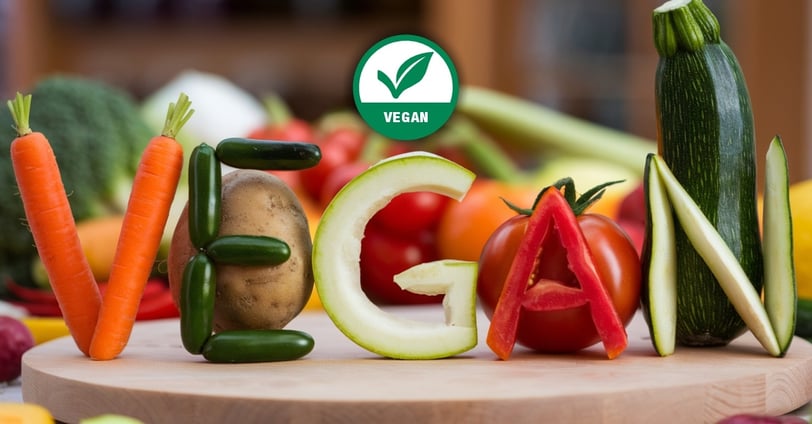Vegan Label: What They Mean for Your Food Choices
Discover what vegan labels really mean, how to use them to identify plant-based foods, and why they matter for making informed dietary choices.
EXTENSION FEATURESINGREDIENTSHEALTHY CHOICES
Healthatize
8/22/20242 min read


In recent years, the vegan lifestyle has gained popularity not only for its ethical considerations but also for its health benefits. Whether you’re fully committed to a vegan diet or simply trying to incorporate more plant-based options into your meals, understanding vegan labels on food products can be essential. But what do these labels really mean, and how can they help you make better food choices?
What Does the Vegan Label Mean?
A vegan label on a product indicates that it contains no animal-derived ingredients. This means it’s free from meat, dairy, eggs, honey, and any other substances that come from animals. Additionally, products labeled as vegan are typically not tested on animals, making them a choice that aligns with both ethical and dietary preferences.
However, it’s important to note that "vegan" doesn’t necessarily mean "healthy." Some vegan products can be high in sugars, fats, or artificial ingredients, so it’s still crucial to check the nutritional information.
How to Use the Vegan Label Effectively
Identifying Vegan Products:
The easiest way to identify if a product is vegan is to look for a vegan label or certification. These labels are usually placed on the front of the packaging and are designed to be easily noticeable.
Reading Ingredient Lists:
Sometimes, products might not have a vegan label but can still be vegan. Reading the ingredient list carefully can help you identify animal-derived ingredients like gelatin, casein, or whey that might not be obvious at first glance.
Cross-Referencing with Other Labels:
If a product is labeled vegan, it often aligns with other dietary preferences, such as being dairy-free or gluten-free. However, this is not always the case, so if you have specific dietary needs, make sure to check for other relevant labels.
Vegan Doesn’t Mean Healthy:
As mentioned earlier, a vegan label doesn’t guarantee that a product is healthy. Many processed vegan foods can be high in unhealthy additives. It’s essential to pair the vegan label with nutritional information to ensure the product aligns with your health goals.
Why Vegan Labels Matter
For those following a vegan lifestyle, these labels are more than just symbols on a package—they represent a commitment to a lifestyle that avoids animal products for ethical, environmental, and health reasons. But even for those who aren’t vegan, understanding these labels can be beneficial, offering a way to incorporate more plant-based options into your diet.
Plant-based diets are associated with numerous health benefits, including lower risks of heart disease, high blood pressure, and certain types of cancer. By choosing products with vegan labels, you can contribute to these benefits while also reducing your environmental footprint.
Understanding vegan labels is a useful skill for anyone looking to make informed food choices. Whether you’re vegan, vegetarian, or just looking to reduce your consumption of animal products, knowing what these labels signify can help you navigate your options more effectively. While the vegan label is a helpful guide, remember to consider the overall nutritional content of the products you choose.
